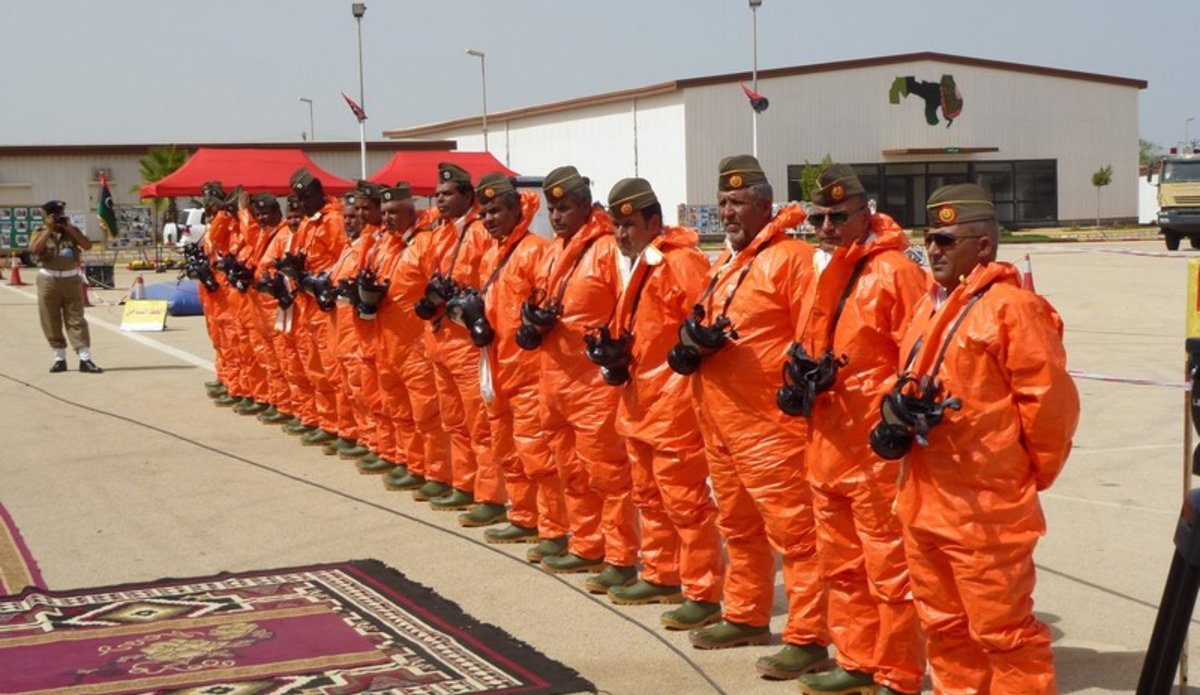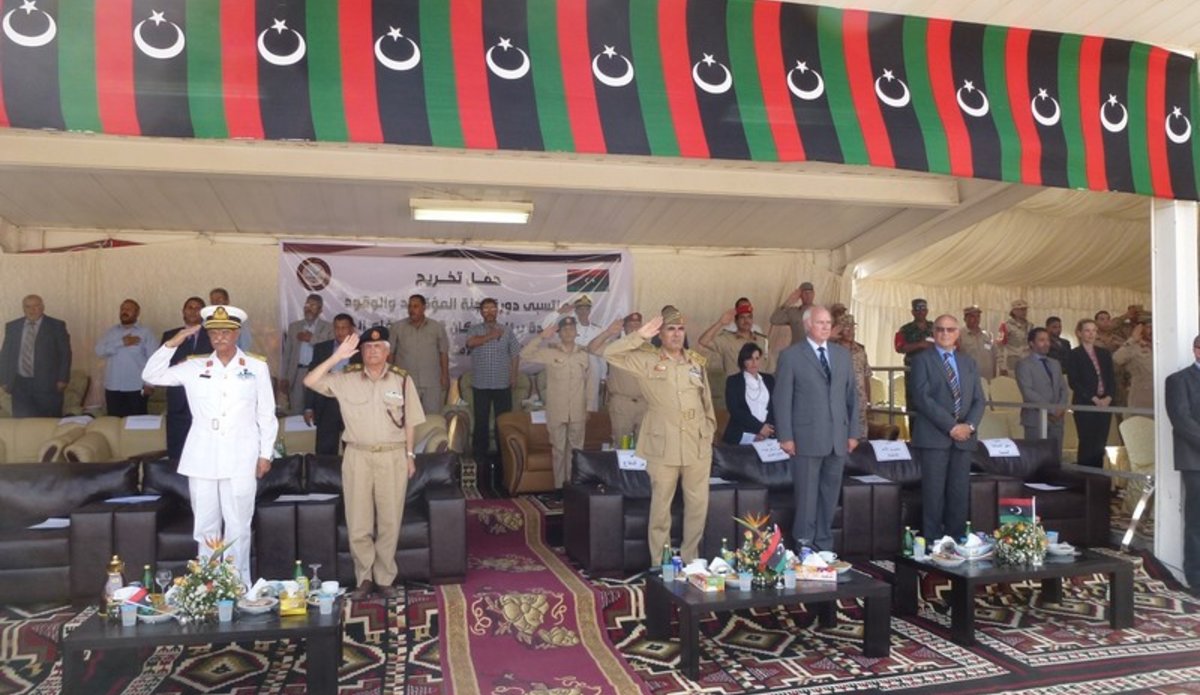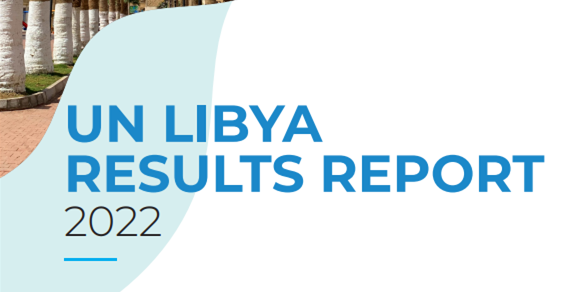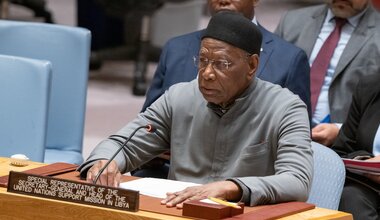Libyan Air Defence Joins in Protecting Libyans From Toxic Liquid Rocket Fuel on the Ground
Wearing their glowing orange protective gear and brandishing black gas masks, 19 Libyan Air Defence personnel immediately got down to business, displaying their newly acquired skills about how to deal with a crisis resulting from leaking liquid rocket fuel.
They safely dismantled a SAM2 missile as viewers, including VIPs and hundreds from all components of the Libyan Military, applauded at a base in Tripoli.
In real life, an encounter as such could be deadly. But the entire operation on Sunday 29 September 2013 was just a simulation, part of a two-hour graduation ceremony of a new batch of experts in the field whose job is to rid Libya of such danger.
These and other skills on the safe neutralization of corroded or partially destroyed liquid rocket fuel containers were the product of a 23-day training program offered to the Libyan military to ensure a safer environment for the Libyan people.
The UN Support Mission in Libya (UNSMIL), through the United Nations Mine Action Service (UNMAS) and with contribution of 600,000 British pounds from the United Kingdom Conflict Pool, trained and equipped the Libyan unit.
The impact from the release of toxic gases from remnant missiles after the recent conflict and from those lying in conflict-affected military facilities in addition to liquid fuel storage sites, is considerable as it poses a serious risk to human lives, health and the environment. The components of the liquid fuel are a complex mixture of extremely active chemical substances, easily evaporating and highly toxic.
At the ceremony Sunday, graduates received certificates while the Director of UNSMIL’s Security Sector Advisory and Coordination Division (SSACD), John Durance, and British Ambassador to Libya Michael Aron were presented with Plaques for the occasion. Also present at the ceremony was the Libyan Chief of the General Staff, Major-General Abdulsalam Jadallah Al-Obaidi, as well as other military and civilian officials.
Mr. Durance commended the Libyan Air Defence’s commitment to address the threat from damaged missiles and liquid fuel storage sites to protect Libyan communities and strengthen state control in this area. He stressed the importance of adherence to international standards to ensure the safety of Libyans and Libyan Air Defence personnel.
“Together with its partners and building on Libyan priorities articulated in the Security, Justice and Rule of Law Development plan, UNSMIL continues to support the Libyan government in reforming its security sector for a safer and a more secure Libya'', Mr. Durance said.
Thanking UNSMIL and the UK for their support, Brigadier-General Gumaa Hussein Al Abani of the Libyan Air Defence component emphasized the importance of strengthening existing Libyan capacities to ensure overall sustainability of such initiatives. He noted that the newly acquired skills and equipment will enhance de-tanking operations.
This effort complements other UNSMIL ammunition management initiatives supported by the UK Conflict Pool through a separate contribution of 500,000 British pounds.
UNMAS is the United Nations focal point for mine action. It currently supports programmes in Afghanistan, Chad, Colombia, Côte d'Ivoire, Cyprus, Democratic Republic of the Congo, Lebanon, Libya, Mali, State of Palestine, Somalia, South Sudan, Sudan and Western Sahara (MINURSO).
 United Nations Peacekeeping
United Nations Peacekeeping UN
UN











